Dogs:
- Plenty of cool drinking water
- Try to place the drinking water in a shady place to avoid it heating during the day
- Sometimes an ice bottle/block in the water will help keep it cool during the day
- Inside dogs will find the best spot in the house – usually near the air-con duct
- Outside dogs may need a hose-down occasionally or access to a water bath or trough
- Aim to take them walking early morning or evening after the sun has gone down and the road/pavement surface is no longer hot.
Horses:
- Try to provide access to trees or a shelter shed during the hot part of the day
- Ensure plenty of drinking water is available, a larger volume will not heat up significantly during a hot day. Placement in the shade is desirable.
- Aim to ride/exercise your horse early morning or during the evening
- If you plan to ride during warm conditions, pre-cool before riding: cover the saddle area with a plastic sheet to keep it dry, sponge or hose your horse, then saddle him up and as the horse exercises the evaporation of water in the coat will keep him cool for 10-15mins.
- Upon finishing exercise, allow your horse to walk for 3-5 minutes to trigger sweat loss, dismount, unsaddle and either wash with cool water and a sponge or lightly hose his body and legs. Use a scraper on his topline, neck, sides and underbelly to remove the ‘warm’ water allowing any water in the coat to evaporate more efficiently. If he is hot and panting, take him for a short walk and then sponge or hose again, repeat the process until he is comfortable.
- During a ride on a hot afternoon, you can carry a saturated sponge in a plastic bag attached to your saddle. If you decide to stop for a rest, you can sponge his neck, topline, flanks and underbelly. If continuing to ride within a few minutes, scraping will not be necessary as the water will evaporate with airflow as you ride. Otherwise just scrape the excess water off with your hands.
- Make sure your horse has access to a salt block which will encourage water intake. If your horse is working regularly in hot weather, consider using an electrolyte supplement.
Rabbits, Guinea Pigs, Birds, Chooks:
- Provide plenty of cool water
- Use a frozen bottle of water for rabbits and guinea pigs to lie against
- Cages placed in a shady location are desirable or use a shade cloth or rigid shade placed over the cage.
- A garden mister attachment on a garden dripper line can be used to provide a cooling spray for chickens and birds. Consider using a timer tap so it operates for a specified time.
- A garden sprinkler run in a chicken coop will provide a patch of damp dirt for them to scratch about in afterwards.
- Cages can be hung with a wet hessian bag or towel which acts with evaporation as the air passes through to make the environment in the cage cooler.
- Salt licks which encourage water intake are available for rabbits and guinea pigs.

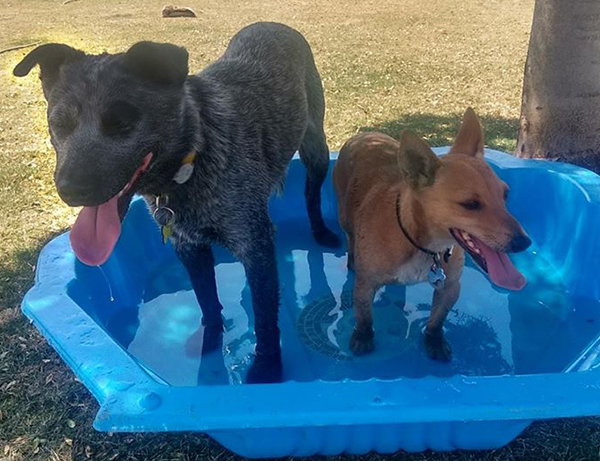
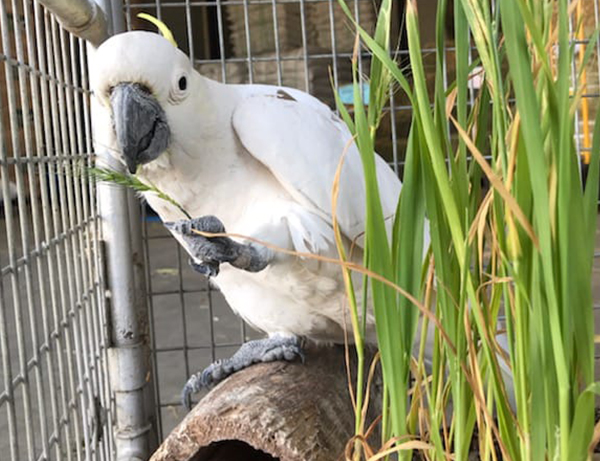

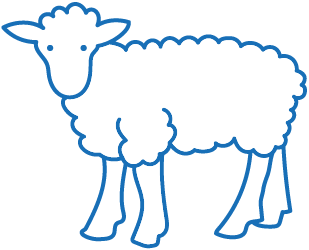



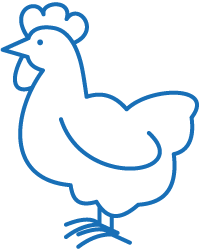


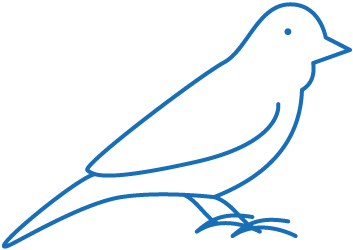


LAST DAYS of our Tuckers catalogue sale
ends tomorrow 1.30pm
www.sandersfodder.com.au/catalogues/tuckers-winter-catalogue-3/
#cat #dog #horse #pet #garden #farm #chalkboardspecials ... See MoreSee Less
0 CommentsComment on Facebook
Last week of our catalogue sale - ends June 22nd
www.sandersfodder.com.au/catalogues/tuckers-winter-catalogue-3/ ... See MoreSee Less
0 CommentsComment on Facebook
Get onto those weeds now
Spray equipment in store
#weedsprayers #herbicides #chalkboardspecials ... See MoreSee Less
0 CommentsComment on Facebook
Treat your equine to some of our catalogue specials.
Ends June 22nd
#mitavite #coprice #Johnsons #barastoc #horsefeed #chalkboardspecials ... See MoreSee Less
0 CommentsComment on Facebook
Dog food catalogue specials on now until June 22nd
🐕🐕🐕🐕🐕🐕
#dogfood #chalkboardspecials ... See MoreSee Less
0 CommentsComment on Facebook